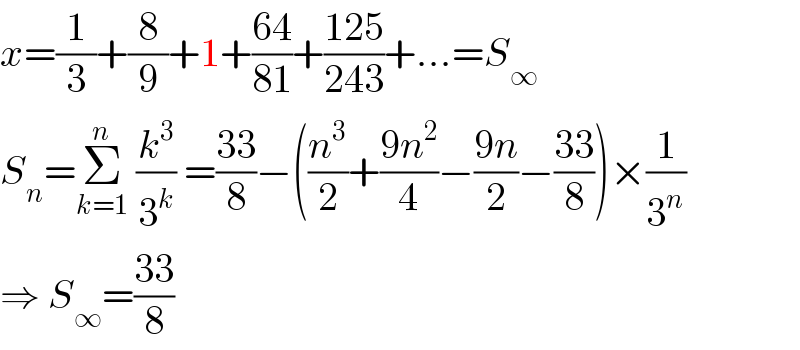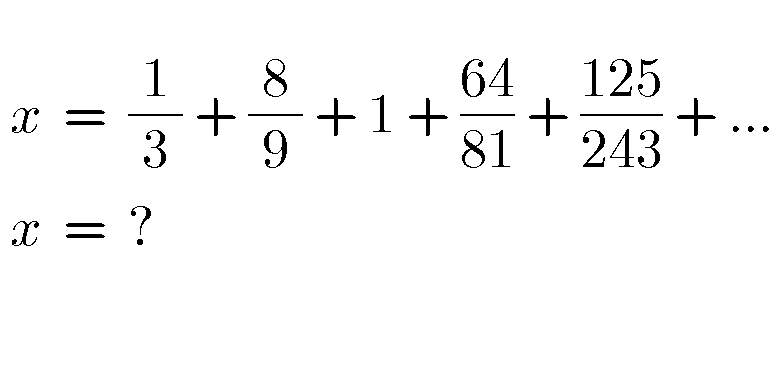Question Number 85105 by naka3546 last updated on 19/Mar/20

Answered by MJS last updated on 19/Mar/20

$${x}=\frac{\mathrm{1}}{\mathrm{3}}+\frac{\mathrm{8}}{\mathrm{9}}+\mathrm{1}+\frac{\mathrm{64}}{\mathrm{81}}+\frac{\mathrm{125}}{\mathrm{243}}+…={S}_{\infty} \\ $$$${S}_{{n}} =\underset{{k}=\mathrm{1}} {\overset{{n}} {\sum}}\:\frac{{k}^{\mathrm{3}} }{\mathrm{3}^{{k}} }\:=\frac{\mathrm{33}}{\mathrm{8}}−\left(\frac{{n}^{\mathrm{3}} }{\mathrm{2}}+\frac{\mathrm{9}{n}^{\mathrm{2}} }{\mathrm{4}}−\frac{\mathrm{9}{n}}{\mathrm{2}}−\frac{\mathrm{33}}{\mathrm{8}}\right)×\frac{\mathrm{1}}{\mathrm{3}^{{n}} } \\ $$$$\Rightarrow\:{S}_{\infty} =\frac{\mathrm{33}}{\mathrm{8}} \\ $$
Commented by naka3546 last updated on 19/Mar/20

